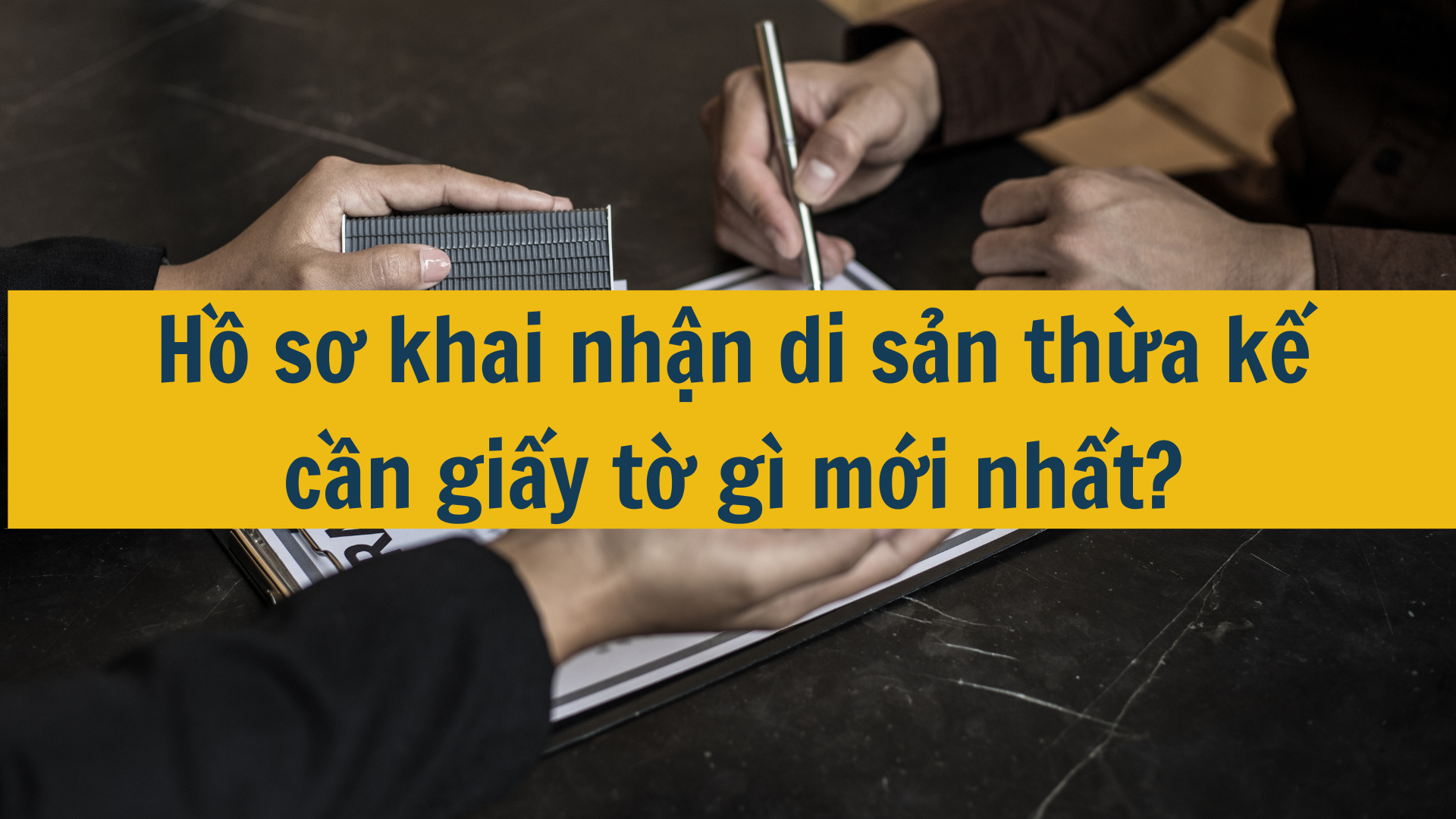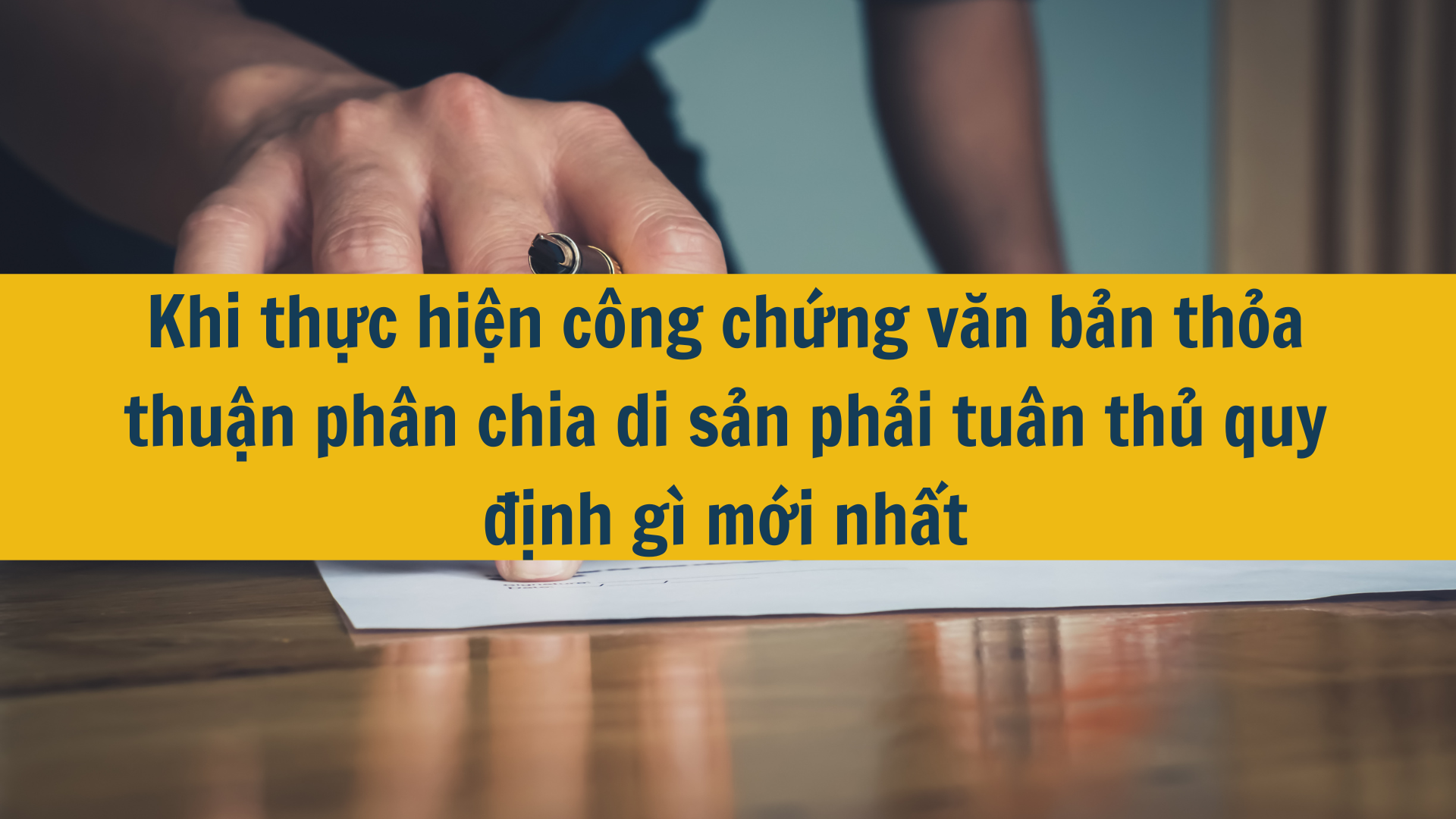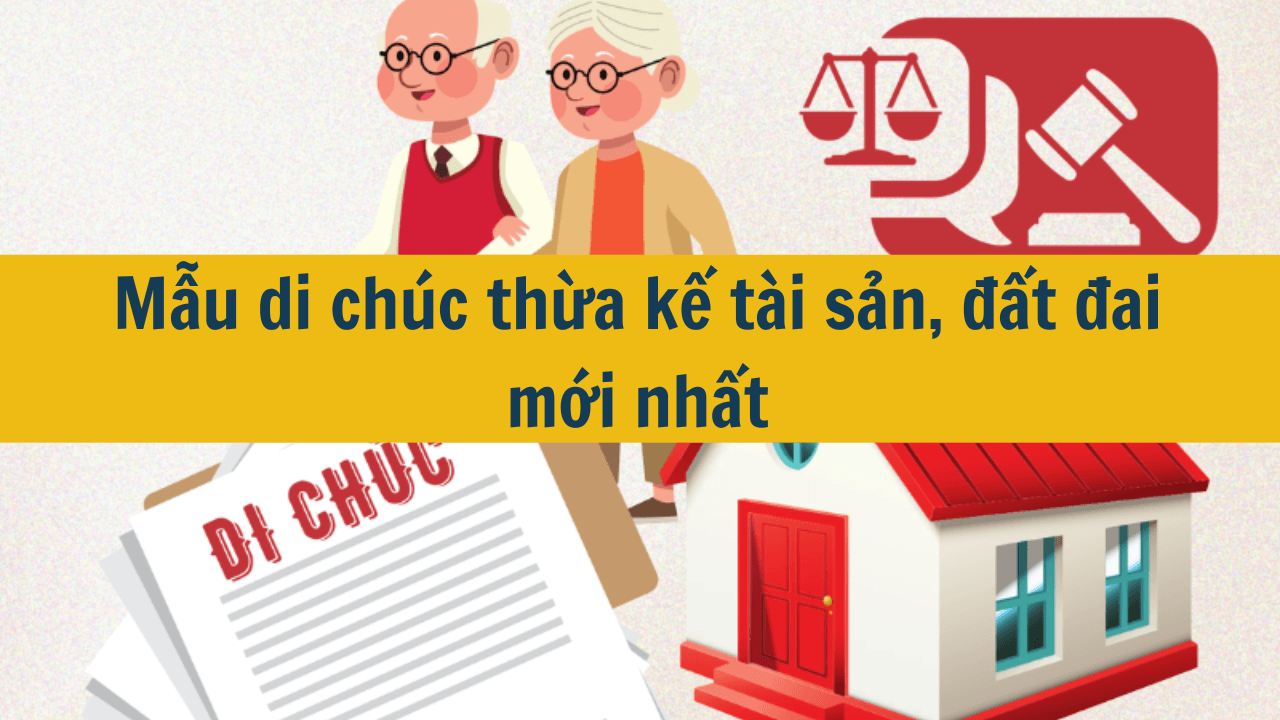 Tìm kiếm
Tìm kiếm
Chương V Luật Công chứng 2014: Thủ tục công chứng hợp đồng, giao dịch, bản dịch
| Số hiệu: | 53/2014/QH13 | Loại văn bản: | Luật |
| Nơi ban hành: | Quốc hội | Người ký: | Nguyễn Sinh Hùng |
| Ngày ban hành: | 20/06/2014 | Ngày hiệu lực: | 01/01/2015 |
| Ngày công báo: | 16/07/2014 | Số công báo: | Từ số 681 đến số 682 |
| Lĩnh vực: | Dịch vụ pháp lý | Tình trạng: | Còn hiệu lực |
TÓM TẮT VĂN BẢN
Điểm mới Luật Công chứng 2014
Ngày 20/06 vừa qua, Luật Công chứng mới số 53/2014/QH13 được Quốc hội thông qua, và có những thay đổi cơ bản sau:
Mở rộng quyền cho công chứng viên, cụ thể:
- Thêm quyền công chứng bản dịch giấy tờ, văn bản từ tiếng Việt sang tiếng nước ngoài và ngược lại;
- Thêm quyền chứng thực bản sao từ bản chính, chứng thực chữ ký trong giấy tờ, văn bản.
Siết chặt đào tạo nghề công chứng:
- Tăng thời gian đào tạo công chứng lên 12 tháng;
- Tăng thời gian hành nghề lên 05 năm đối với thẩm phán, kiểm sát viên, điều tra viên, luật sư đồng thời phải tham gia khóa bồi dưỡng nghề trong 03 tháng mới được miễn đào tạo nghề.
Văn phòng công chứng được phép chuyển nhượng nếu đã hoạt động được 02 năm; công chứng viên chuyển nhượng sẽ không được phép thành lập Văn phòng công chứng mới trong thời hạn 05 năm.
Luật Công chứng 2014 sẽ có hiệu lực thi hành từ 01/01/2015.
Văn bản tiếng việt
Văn bản tiếng anh
1. Hồ sơ yêu cầu công chứng được lập thành một bộ, gồm các giấy tờ sau đây:
a) Phiếu yêu cầu công chứng, trong đó có thông tin về họ tên, địa chỉ người yêu cầu công chứng, nội dung cần công chứng, danh mục giấy tờ gửi kèm theo; tên tổ chức hành nghề công chứng, họ tên người tiếp nhận hồ sơ yêu cầu công chứng, thời điểm tiếp nhận hồ sơ;
b) Dự thảo hợp đồng, giao dịch;
c) Bản sao giấy tờ tùy thân của người yêu cầu công chứng;
d) Bản sao giấy chứng nhận quyền sở hữu, quyền sử dụng hoặc bản sao giấy tờ thay thế được pháp luật quy định đối với tài sản mà pháp luật quy định phải đăng ký quyền sở hữu, quyền sử dụng trong trường hợp hợp đồng, giao dịch liên quan đến tài sản đó;
đ) Bản sao giấy tờ khác có liên quan đến hợp đồng, giao dịch mà pháp luật quy định phải có.
2. Bản sao quy định tại khoản 1 Điều này là bản chụp, bản in hoặc bản đánh máy có nội dung đầy đủ, chính xác như bản chính và không phải chứng thực.
3. Công chứng viên kiểm tra giấy tờ trong hồ sơ yêu cầu công chứng. Trường hợp hồ sơ yêu cầu công chứng đầy đủ, phù hợp với quy định của pháp luật thì thụ lý và ghi vào sổ công chứng.
4. Công chứng viên hướng dẫn người yêu cầu công chứng tuân thủ đúng các quy định về thủ tục công chứng và các quy định pháp luật có liên quan đến việc thực hiện hợp đồng, giao dịch; giải thích cho người yêu cầu công chứng hiểu rõ quyền, nghĩa vụ và lợi ích hợp pháp của họ, ý nghĩa và hậu quả pháp lý của việc tham gia hợp đồng, giao dịch.
5. Trong trường hợp có căn cứ cho rằng trong hồ sơ yêu cầu công chứng có vấn đề chưa rõ, việc giao kết hợp đồng, giao dịch có dấu hiệu bị đe dọa, cưỡng ép, có sự nghi ngờ về năng lực hành vi dân sự của người yêu cầu công chứng hoặc đối tượng của hợp đồng, giao dịch chưa được mô tả cụ thể thì công chứng viên đề nghị người yêu cầu công chứng làm rõ hoặc theo đề nghị của người yêu cầu công chứng, công chứng viên tiến hành xác minh hoặc yêu cầu giám định; trường hợp không làm rõ được thì có quyền từ chối công chứng.
6. Công chứng viên kiểm tra dự thảo hợp đồng, giao dịch; nếu trong dự thảo hợp đồng, giao dịch có điều khoản vi phạm pháp luật, trái đạo đức xã hội, đối tượng của hợp đồng, giao dịch không phù hợp với quy định của pháp luật thì công chứng viên phải chỉ rõ cho người yêu cầu công chứng để sửa chữa. Trường hợp người yêu cầu công chứng không sửa chữa thì công chứng viên có quyền từ chối công chứng.
7. Người yêu cầu công chứng tự đọc lại dự thảo hợp đồng, giao dịch hoặc công chứng viên đọc cho người yêu cầu công chứng nghe theo đề nghị của người yêu cầu công chứng.
8. Người yêu cầu công chứng đồng ý toàn bộ nội dung trong dự thảo hợp đồng, giao dịch thì ký vào từng trang của hợp đồng, giao dịch. Công chứng viên yêu cầu người yêu cầu công chứng xuất trình bản chính của các giấy tờ quy định tại khoản 1 Điều này để đối chiếu trước khi ghi lời chứng, ký vào từng trang của hợp đồng, giao dịch.
1. Người yêu cầu công chứng nộp một bộ hồ sơ theo quy định tại các điểm a, c, d và đ khoản 1 và khoản 2 Điều 40 của Luật này và nêu nội dung, ý định giao kết hợp đồng, giao dịch.
2. Công chứng viên thực hiện các việc quy định tại các khoản 3, 4 và 5 Điều 40 của Luật này.
Trường hợp nội dung, ý định giao kết hợp đồng, giao dịch là xác thực, không vi phạm pháp luật, không trái đạo đức xã hội thì công chứng viên soạn thảo hợp đồng, giao dịch.
3. Người yêu cầu công chứng tự đọc dự thảo hợp đồng, giao dịch hoặc công chứng viên đọc cho người yêu cầu công chứng nghe. Trường hợp người yêu cầu công chứng đồng ý toàn bộ nội dung trong dự thảo hợp đồng, giao dịch thì ký vào từng trang của hợp đồng, giao dịch. Công chứng viên yêu cầu người yêu cầu công chứng xuất trình bản chính của các giấy tờ quy định tại khoản 1 Điều này để đối chiếu trước khi ghi lời chứng, ký vào từng trang của hợp đồng, giao dịch.
Công chứng viên của tổ chức hành nghề công chứng chỉ được công chứng hợp đồng, giao dịch về bất động sản trong phạm vi tỉnh, thành phố trực thuộc trung ương nơi tổ chức hành nghề công chứng đặt trụ sở, trừ trường hợp công chứng di chúc, văn bản từ chối nhận di sản là bất động sản và văn bản ủy quyền liên quan đến việc thực hiện các quyền đối với bất động sản.
1. Thời hạn công chứng được xác định kể từ ngày thụ lý hồ sơ yêu cầu công chứng đến ngày trả kết quả công chứng. Thời gian xác minh, giám định nội dung liên quan đến hợp đồng, giao dịch, niêm yết việc thụ lý công chứng văn bản thỏa thuận phân chia di sản, văn bản khai nhận di sản, dịch giấy tờ, văn bản không tính vào thời hạn công chứng.
2. Thời hạn công chứng không quá 02 ngày làm việc; đối với hợp đồng, giao dịch có nội dung phức tạp thì thời hạn công chứng có thể kéo dài hơn nhưng không quá 10 ngày làm việc.
1. Việc công chứng phải được thực hiện tại trụ sở của tổ chức hành nghề công chứng, trừ các trường hợp quy định tại khoản 2 Điều này.
2. Việc công chứng có thể được thực hiện ngoài trụ sở của tổ chức hành nghề công chứng trong trường hợp người yêu cầu công chứng là người già yếu, không thể đi lại được, người đang bị tạm giữ, tạm giam, đang thi hành án phạt tù hoặc có lý do chính đáng khác không thể đến trụ sở của tổ chức hành nghề công chứng.
1. Chữ viết trong văn bản công chứng phải rõ ràng, dễ đọc, không được viết tắt hoặc viết bằng ký hiệu, không được viết xen dòng, viết đè dòng, không được tẩy xoá, không được để trống, trừ trường hợp pháp luật có quy định khác.
2. Thời điểm công chứng phải được ghi cả ngày, tháng, năm; có thể ghi giờ, phút nếu người yêu cầu công chứng đề nghị hoặc công chứng viên thấy cần thiết. Các con số phải được ghi cả bằng số và chữ, trừ trường hợp pháp luật có quy định khác.
1. Lời chứng của công chứng viên đối với hợp đồng, giao dịch phải ghi rõ thời điểm, địa điểm công chứng, họ, tên công chứng viên, tên tổ chức hành nghề công chứng; chứng nhận người tham gia hợp đồng, giao dịch hoàn toàn tự nguyện, có năng lực hành vi dân sự, mục đích, nội dung của hợp đồng, giao dịch không vi phạm pháp luật, không trái đạo đức xã hội, chữ ký hoặc dấu điểm chỉ trong hợp đồng, giao dịch đúng là chữ ký hoặc dấu điểm chỉ của người tham gia hợp đồng, giao dịch; trách nhiệm của công chứng viên đối với lời chứng; có chữ ký của công chứng viên và đóng dấu của tổ chức hành nghề công chứng.
2. Bộ trưởng Bộ Tư pháp quy định chi tiết mẫu lời chứng của công chứng viên đối với hợp đồng, giao dịch.
1. Người yêu cầu công chứng là cá nhân phải có năng lực hành vi dân sự.
Trường hợp người yêu cầu công chứng là tổ chức thì việc yêu cầu công chứng được thực hiện thông qua người đại diện theo pháp luật hoặc người đại diện theo ủy quyền của tổ chức đó.
Người yêu cầu công chứng phải xuất trình đủ giấy tờ cần thiết liên quan đến việc công chứng và chịu trách nhiệm về tính chính xác, tính hợp pháp của các giấy tờ đó.
2. Trường hợp người yêu cầu công chứng không đọc được, không nghe được, không ký, điểm chỉ được hoặc trong những trường hợp khác do pháp luật quy định thì việc công chứng phải có người làm chứng.
Người làm chứng phải là người từ đủ 18 tuổi trở lên, có năng lực hành vi dân sự đầy đủ và không có quyền, lợi ích hoặc nghĩa vụ liên quan đến việc công chứng.
Người làm chứng do người yêu cầu công chứng mời, nếu người yêu cầu công chứng không mời được thì công chứng viên chỉ định.
3. Trường hợp người yêu cầu công chứng không thông thạo tiếng Việt thì họ phải có người phiên dịch.
Người phiên dịch phải là người từ đủ 18 tuổi trở lên, có năng lực hành vi dân sự đầy đủ, thông thạo tiếng Việt và ngôn ngữ mà người yêu cầu công chứng sử dụng.
Người phiên dịch do người yêu cầu công chứng mời và phải chịu trách nhiệm trước pháp luật về việc phiên dịch của mình.
1. Người yêu cầu công chứng, người làm chứng, người phiên dịch phải ký vào hợp đồng, giao dịch trước mặt công chứng viên.
Trong trường hợp người có thẩm quyền giao kết hợp đồng của tổ chức tín dụng, doanh nghiệp khác đã đăng ký chữ ký mẫu tại tổ chức hành nghề công chứng thì người đó có thể ký trước vào hợp đồng; công chứng viên phải đối chiếu chữ ký của họ trong hợp đồng với chữ ký mẫu trước khi thực hiện việc công chứng.
2. Việc điểm chỉ được thay thế việc ký trong trường hợp người yêu cầu công chứng, người làm chứng, người phiên dịch không ký được do khuyết tật hoặc không biết ký. Khi điểm chỉ, người yêu cầu công chứng, người làm chứng, người phiên dịch sử dụng ngón trỏ phải; nếu không điểm chỉ được bằng ngón trỏ phải thì điểm chỉ bằng ngón trỏ trái; trường hợp không thể điểm chỉ bằng hai ngón trỏ đó thì điểm chỉ bằng ngón khác và phải ghi rõ việc điểm chỉ đó bằng ngón nào, của bàn tay nào.
3. Việc điểm chỉ cũng có thể thực hiện đồng thời với việc ký trong các trường hợp sau đây:
a) Công chứng di chúc;
b) Theo đề nghị của người yêu cầu công chứng;
c) Công chứng viên thấy cần thiết để bảo vệ quyền lợi cho người yêu cầu công chứng.
Văn bản công chứng có từ hai trang trở lên thì từng trang phải được đánh số thứ tự. Văn bản công chứng có từ hai tờ trở lên phải được đóng dấu giáp lai giữa các tờ.
1. Lỗi kỹ thuật là lỗi do sai sót trong khi ghi chép, đánh máy, in ấn trong văn bản công chứng mà việc sửa lỗi đó không làm ảnh hưởng đến quyền và nghĩa vụ của người tham gia hợp đồng, giao dịch.
2. Việc sửa lỗi kỹ thuật trong văn bản công chứng được thực hiện tại tổ chức hành nghề công chứng đã thực hiện việc công chứng đó. Trường hợp tổ chức hành nghề công chứng đã thực hiện việc công chứng chấm dứt hoạt động, chuyển đổi, chuyển nhượng hoặc giải thể thì tổ chức hành nghề công chứng đang lưu trữ hồ sơ công chứng thực hiện việc sửa lỗi kỹ thuật.
3. Công chứng viên thực hiện việc sửa lỗi kỹ thuật có trách nhiệm đối chiếu từng lỗi cần sửa với các giấy tờ trong hồ sơ công chứng, gạch chân chỗ cần sửa, sau đó ghi chữ, dấu hoặc con số đã được sửa vào bên lề kèm theo chữ ký của mình và đóng dấu của tổ chức hành nghề công chứng. Công chứng viên có trách nhiệm thông báo việc sửa lỗi kỹ thuật đó cho người tham gia hợp đồng, giao dịch.
1. Việc công chứng sửa đổi, bổ sung, hủy bỏ hợp đồng, giao dịch đã được công chứng chỉ được thực hiện khi có sự thỏa thuận, cam kết bằng văn bản của tất cả những người đã tham gia hợp đồng, giao dịch đó.
2. Việc công chứng sửa đổi, bổ sung, hủy bỏ hợp đồng, giao dịch đã được công chứng được thực hiện tại tổ chức hành nghề công chứng đã thực hiện việc công chứng đó và do công chứng viên tiến hành. Trường hợp tổ chức hành nghề công chứng đã thực hiện việc công chứng chấm dứt hoạt động, chuyển đổi, chuyển nhượng hoặc giải thể thì công chứng viên của tổ chức hành nghề công chứng đang lưu trữ hồ sơ công chứng thực hiện việc sửa đổi, bổ sung, hủy bỏ hợp đồng, giao dịch.
3. Thủ tục công chứng việc sửa đổi, bổ sung, hủy bỏ hợp đồng, giao dịch đã được công chứng được thực hiện như thủ tục công chứng hợp đồng, giao dịch quy định tại Chương này.
Công chứng viên, người yêu cầu công chứng, người làm chứng, người phiên dịch, người có quyền lợi, nghĩa vụ liên quan, cơ quan nhà nước có thẩm quyền có quyền đề nghị Tòa án tuyên bố văn bản công chứng vô hiệu khi có căn cứ cho rằng việc công chứng có vi phạm pháp luật.
Thủ tục công chứng hợp đồng thế chấp bất động sản, hợp đồng ủy quyền, di chúc, văn bản thỏa thuận phân chia di sản, văn bản khai nhận di sản, văn bản từ chối nhận di sản được thực hiện theo quy định của Mục này và các quy định của Mục 1 Chương này mà không trái với quy định của Mục này.
1. Việc công chứng hợp đồng thế chấp bất động sản phải được thực hiện tại tổ chức hành nghề công chứng có trụ sở tại tỉnh, thành phố trực thuộc trung ương nơi có bất động sản.
2. Trường hợp một bất động sản đã được thế chấp để bảo đảm thực hiện một nghĩa vụ và hợp đồng thế chấp đã được công chứng mà sau đó được tiếp tục thế chấp để bảo đảm cho một nghĩa vụ khác trong phạm vi pháp luật cho phép thì các hợp đồng thế chấp tiếp theo phải được công chứng tại tổ chức hành nghề công chứng đã công chứng hợp đồng thế chấp lần đầu. Trường hợp tổ chức hành nghề công chứng đã thực hiện việc công chứng chấm dứt hoạt động, chuyển đổi, chuyển nhượng hoặc giải thể thì công chứng viên của tổ chức hành nghề công chứng đang lưu trữ hồ sơ công chứng hợp đồng thế chấp tiếp theo đó.
1. Khi công chứng các hợp đồng ủy quyền, công chứng viên có trách nhiệm kiểm tra kỹ hồ sơ, giải thích rõ quyền và nghĩa vụ của các bên và hậu quả pháp lý của việc ủy quyền đó cho các bên tham gia.
2. Trong trường hợp bên ủy quyền và bên được ủy quyền không thể cùng đến một tổ chức hành nghề công chứng thì bên ủy quyền yêu cầu tổ chức hành nghề công chứng nơi họ cư trú công chứng hợp đồng ủy quyền; bên được ủy quyền yêu cầu tổ chức hành nghề công chứng nơi họ cư trú công chứng tiếp vào bản gốc hợp đồng ủy quyền này, hoàn tất thủ tục công chứng hợp đồng ủy quyền.
1. Người lập di chúc phải tự mình yêu cầu công chứng di chúc, không ủy quyền cho người khác yêu cầu công chứng di chúc.
2. Trường hợp công chứng viên nghi ngờ người lập di chúc bị bệnh tâm thần hoặc mắc bệnh khác mà không thể nhận thức và làm chủ được hành vi của mình hoặc có căn cứ cho rằng việc lập di chúc có dấu hiệu bị lừa dối, đe dọa hoặc cưỡng ép thì công chứng viên đề nghị người lập di chúc làm rõ, trường hợp không làm rõ được thì có quyền từ chối công chứng di chúc đó.
Trường hợp tính mạng người lập di chúc bị đe dọa thì người yêu cầu công chứng không phải xuất trình đầy đủ giấy tờ quy định tại khoản 1 Điều 40 của Luật này nhưng phải ghi rõ trong văn bản công chứng.
3. Di chúc đã được công chứng nhưng sau đó người lập di chúc muốn sửa đổi, bổ sung, thay thế, hủy bỏ một phần hoặc toàn bộ di chúc thì có thể yêu cầu bất kỳ công chứng viên nào công chứng việc sửa đổi, bổ sung, thay thế hoặc hủy bỏ đó. Trường hợp di chúc trước đó đang được lưu giữ tại một tổ chức hành nghề công chứng thì người lập di chúc phải thông báo cho tổ chức hành nghề công chứng đang lưu giữ di chúc biết việc sửa đổi, bổ sung, thay thế, hủy bỏ di chúc đó.
1. Những người thừa kế theo pháp luật hoặc theo di chúc mà trong di chúc không xác định rõ phần di sản được hưởng của từng người thì có quyền yêu cầu công chứng văn bản thỏa thuận phân chia di sản.
Trong văn bản thỏa thuận phân chia di sản, người được hưởng di sản có thể tặng cho toàn bộ hoặc một phần di sản mà mình được hưởng cho người thừa kế khác.
2. Trường hợp di sản là quyền sử dụng đất hoặc tài sản pháp luật quy định phải đăng ký quyền sở hữu thì trong hồ sơ yêu cầu công chứng phải có giấy tờ chứng minh quyền sử dụng đất, quyền sở hữu tài sản của người để lại di sản đó.
Trường hợp thừa kế theo pháp luật, thì trong hồ sơ yêu cầu công chứng phải có giấy tờ chứng minh quan hệ giữa người để lại di sản và người được hưởng di sản theo quy định của pháp luật về thừa kế. Trường hợp thừa kế theo di chúc, trong hồ sơ yêu cầu công chứng phải có bản sao di chúc.
3. Công chứng viên phải kiểm tra để xác định người để lại di sản đúng là người có quyền sử dụng đất, quyền sở hữu tài sản và những người yêu cầu công chứng đúng là người được hưởng di sản; nếu thấy chưa rõ hoặc có căn cứ cho rằng việc để lại di sản và hưởng di sản là không đúng pháp luật thì từ chối yêu cầu công chứng hoặc theo đề nghị của người yêu cầu công chứng, công chứng viên tiến hành xác minh hoặc yêu cầu giám định.
Tổ chức hành nghề công chứng có trách nhiệm niêm yết việc thụ lý công chứng văn bản thỏa thuận phân chia di sản trước khi thực hiện việc công chứng.
4. Văn bản thỏa thuận phân chia di sản đã được công chứng là một trong các căn cứ để cơ quan nhà nước có thẩm quyền đăng ký việc chuyển quyền sử dụng đất, quyền sở hữu tài sản cho người được hưởng di sản.
1. Người duy nhất được hưởng di sản theo pháp luật hoặc những người cùng được hưởng di sản theo pháp luật nhưng thỏa thuận không phân chia di sản đó có quyền yêu cầu công chứng văn bản khai nhận di sản.
2. Việc công chứng văn bản khai nhận di sản được thực hiện theo quy định tại khoản 2 và khoản 3 Điều 57 của Luật này.
3. Chính phủ quy định chi tiết thủ tục niêm yết việc thụ lý công chứng văn bản thỏa thuận phân chia di sản, văn bản khai nhận di sản.
Người thừa kế có thể yêu cầu công chứng văn bản từ chối nhận di sản. Khi yêu cầu công chứng văn bản từ chối nhận di sản, người yêu cầu công chứng phải xuất trình bản sao di chúc trong trường hợp thừa kế theo di chúc hoặc giấy tờ chứng minh quan hệ giữa người để lại di sản và người yêu cầu công chứng theo pháp luật về thừa kế; giấy chứng tử hoặc giấy tờ khác chứng minh người để lại di sản đã chết.
1. Người lập di chúc có thể yêu cầu tổ chức hành nghề công chứng nhận lưu giữ di chúc của mình. Khi nhận lưu giữ di chúc, công chứng viên phải niêm phong bản di chúc trước mặt người lập di chúc, ghi giấy nhận lưu giữ và giao cho người lập di chúc.
2. Đối với di chúc đã được tổ chức hành nghề công chứng nhận lưu giữ nhưng sau đó tổ chức này chấm dứt hoạt động, chuyển đổi, chuyển nhượng hoặc giải thể thì trước khi chấm dứt hoạt động, chuyển đổi, chuyển nhượng hoặc giải thể, tổ chức hành nghề công chứng phải thỏa thuận với người lập di chúc về việc chuyển cho tổ chức hành nghề công chứng khác lưu giữ di chúc. Trường hợp không có thỏa thuận hoặc không thỏa thuận được thì di chúc và phí lưu giữ di chúc phải được trả lại cho người lập di chúc.
3. Việc công bố di chúc lưu giữ tại tổ chức hành nghề công chứng được thực hiện theo quy định của pháp luật về dân sự.
1. Việc dịch giấy tờ, văn bản từ tiếng Việt sang tiếng nước ngoài hoặc từ tiếng nước ngoài sang tiếng Việt để công chứng phải do người phiên dịch là cộng tác viên của tổ chức hành nghề công chứng thực hiện. Cộng tác viên phải là người tốt nghiệp đại học ngoại ngữ hoặc đại học khác mà thông thạo thứ tiếng nước ngoài đó. Cộng tác viên phải chịu trách nhiệm đối với tổ chức hành nghề công chứng về tính chính xác, phù hợp của nội dung bản dịch do mình thực hiện.
2. Công chứng viên tiếp nhận bản chính giấy tờ, văn bản cần dịch, kiểm tra và giao cho người phiên dịch là cộng tác viên của tổ chức mình thực hiện. Người phiên dịch phải ký vào từng trang của bản dịch trước khi công chứng viên ghi lời chứng và ký vào từng trang của bản dịch.
Từng trang của bản dịch phải được đóng dấu chữ “Bản dịch” vào chỗ trống phía trên bên phải; bản dịch phải được đính kèm với bản sao của bản chính và được đóng dấu giáp lai.
3. Lời chứng của công chứng viên đối với bản dịch phải ghi rõ thời điểm, địa điểm công chứng, họ tên công chứng viên, tên tổ chức hành nghề công chứng; họ tên người phiên dịch; chứng nhận chữ ký trong bản dịch đúng là chữ ký của người phiên dịch; chứng nhận nội dung bản dịch là chính xác, không vi phạm pháp luật, không trái đạo đức xã hội; có chữ ký của công chứng viên và đóng dấu của tổ chức hành nghề công chứng.
4. Công chứng viên không được nhận và công chứng bản dịch trong các trường hợp sau đây:
a) Công chứng viên biết hoặc phải biết bản chính được cấp sai thẩm quyền hoặc không hợp lệ; bản chính giả;
b) Giấy tờ, văn bản được yêu cầu dịch đã bị tẩy xoá, sửa chữa, thêm, bớt hoặc bị hư hỏng, cũ nát không thể xác định rõ nội dung;
c) Giấy tờ, văn bản được yêu cầu dịch thuộc bí mật nhà nước; giấy tờ, văn bản bị cấm phổ biến theo quy định của pháp luật.
5. Bộ trưởng Bộ Tư pháp quy định chi tiết mẫu lời chứng của công chứng viên đối với bản dịch.
PROCEDURES FOR NOTARIZATION OF CONTRACTS, TRANSACTIONS AND TRANSLATIONS
Section 1. GENERAL PROCEDURES FOR NOTARIZATION
Article 40. Notarization of ready-made contracts and transactions
1. A notarization request dossier shall be made in one set, comprising:
a/ A notarization request containing information on full name and address of the notarization requester, contents to be notarized and list of enclosed papers; name of the notarial practice organization, full name of the dossier recipient, and time of dossier receipt;
b/ The draft contract or transaction;
c/ A copy of the personal identity paper of the notarization requester;
d/ A copy of the ownership certificate or use right certificate or its substitute paper as permitted by law for assets subject to ownership or use right registration under law, in case the contract or transaction is related to those assets;
dd/.Copies of other papers related to the contract or transaction as required by law.
2. The copies specified in Clause 1 of this Article may be photocopied, printed or typewritten copies containing full and accurate contents as the originals and do not need to be certified.
3. A notary shall check the papers in a notarization request dossier. When the dossier is complete and valid as prescribed by law, he/she shall accept it and record it in the notarial register.
4. Notaries shall guide notarization requesters to comply with regulations on notarization procedures and relevant regulations on performance of contracts and transactions; clearly explain to notarization requesters their rights, obligations and lawful interests as well as the significance and legal consequences of their entry into contracts or transactions.
5. When having grounds to believe that a notarization request dossier contains unclear matters, the contract or transaction was concluded under threat or coercion, or having doubts about the civil act capacity of the notarization requester, or the object of the contract or transaction has not yet been specifically described, a notary may request the notarization requester to clarify the matters or, at the request of the notarization requester, conduct verification or request assessment; if the matters cannot be clarified, the notary has the right to refuse to notarize.
6. A notary shall check the draft contract or transaction; if the draft contains some articles and clauses contrary to law or social ethics or the object of the contract or transaction is incompliant with law, he/she shall point them out for the notarization requester to modify. If the notarization requester fails to modify, the notary has the right to refuse to notarize.
7. The notarization requester shall himself/herself read again the draft contract or transaction or request the notary to read it.
8. If agreeing with the whole contents of the draft contract or transaction, the notarization requester shall sign every page of the draft. The notary shall request the notarization requester to produce the originals of the papers specified in Clause 1 of this Article for comparison before writing testimonies and signing every page of the contract or transaction.
Article 41. Notarization of contracts or transactions drafted by notaries at the request of notarization requesters
1. A notarization requester shall submit a dossier set as prescribed at Points a, c, d and dd, Clause 1, and in Clause 2, Article 40 of this Law, and state the contents of, and the intention of concluding, the contract or transaction.
2. A notary shall perform the jobs specified in Clauses 3,4 and 5, Article 40 of this Law.
When the contents of, and the intention of concluding, the contract or transaction are true, lawful and consistent with social ethics, the notary shall draft the contract or transaction.
3. The notarization requester shall himself/herself read the draft contract or transaction or the notary shall read it for him/her. If agreeing with the whole contents of the draft contract or transaction, the notarization requester shall sign every page of the draft. The notary shall request the notarization requester to produce the originals of the papers specified in Clause 1 of this Article for comparison before writing testimonies and signing every page of the contract or transaction.
Article 42. Scope of notarization of real estate contracts or transactions
Notaries of a notarial practice organization may only notarize contracts and transactions related to real estate within the province or centrally run city where the organization is located, excluding testaments or written disclaimers of real estate and letters of authorization related to the exercise of real estate-related rights.
Article 43. Notarization time limit
1. The notarization time limit shall be counted from the date of acceptance of a notarization request dossier to the time of issuance of notarization results. The time of verification and assessment of contents related to contracts or transactions and posting of information on the acceptance for notarization of written agreements on division of estate, written declarations for acceptance of estate or translations of papers and documents shall not be included in the notarization time limit.
2. The notarization time limit is two working days; for complicated contracts or transactions, this time limit may be longer but must not exceed 10 working days.
Article 44. Notarization places
1. Except the cases specified in Clause 2 of this Article, notarization shall be conducted at head offices of notarial practice organizations.
2. Notarization may be conducted outside the head office of a notarial practice organization if the notarization requester is old and weak and cannot move, is held in custody or in prison, is serving an imprisonment sentence or has another plausible reason for being unable to come to the head office of the notarial practice organization.
Article 45. Scripts in notarized documents
1. Scripts in notarized documents must be clear and legible, must not use any abbreviations and symbols, must not be written between two lines or over the lines, and must not be erased; no blank space is allowed, unless otherwise provided by law.
2. The time of notarization shall be expressed in terms of date, month and year; the hour and minute may also be indicated as requested by the notarization requester or considered necessary by the notary. Unless otherwise provided by law, numbers shall be written in both figures and words.
Article 46. Testimonies of notaries
1. Testimonies of a notary for a contract or transaction must clearly state the time and place of notarization, full name of the notary and name of the notarial practice organization; certify that the parties to the contract or transaction act on a completely voluntary basis and has civil act capacity, and that the purpose and contents of the contract or transaction are compliant with law and social ethics, signatures or fingerprints in the contract or transaction are truly those of the parties to the contract or transaction; and responsibility of the notary for his/her testimonies; and must bear the signature of the notary and seal of the notarial practice organization.
2. The Minister of Justice shall stipulate in detail the model testimonies of notaries for contracts or transactions.
Article 47. Notarization requesters, witnesses and interpreters
1. Notarization requesters being individuals must have civil act capacity.
For notarization requesters being organizations, notarization requests shall be made through at-law representatives or authorized representatives of these organizations.
Notarization requesters shall produce all necessary papers related to the notarization and take responsibility for the accuracy and lawfulness of such papers.
2. In case notarization requesters cannot read, hear, sign or press fingerprints, or in other cases prescribed by law, witnesses are required during notarization.
Witnesses must be full 18 years or older, have full civil act capacity and have no rights, interests or obligations related to the notarization.
Witnesses shall be invited by notarization requesters or, if notarization requesters cannot invite witnesses, be designated by notaries.
3. Notarization requesters who are not fluent in Vietnamese must have interpreters.
Interpreters must be full 18 years or older, have full civil act capacity, and are fluent in Vietnamese and the language used by notarization requesters.
Interpreters shall be invited by notarization requesters and take responsibility before law for their interpretation.
Article 48. Signatures, fingerprints in notarized documents
1. Notarization requesters, witnesses and interpreters shall sign contracts or transactions in the presence of notaries.
When a person competent to conclude contracts of a credit institution or another enterprise has registered his/her specimen signature at the notarial practice organization, he/she may sign the contract beforehand; a notary shall compare the signature in the contract with the specimen signature before notarization.
2. Fingerprints may be used instead of signatures in case notarization requesters, witnesses or interpreters are unable to sign because they are physically disabled or do not know how to sign. For his/her fingerprint, the notarization requester, witness or interpreter shall use his/her right forefinger; if he/she cannot use the right forefinger, he/she may use the left forefinger; if he/she cannot use both forefingers, he/she may use another finger; in this case which finger of which hand is used must be clearly stated.
3. Both fingerprint and signature may be used in the following cases:
a/ Notarization of testaments;
b/ At the request of the notarization requester;
c/ The notary finds it necessary to protect the interests of the notarization requester.
Article 49. Pagination of notarized documents
A notarized document containing two or more pages shall be paginated. For a notarized document containing two or more sheets, every two adjoining sheets shall be appended with an overlapping seal on their inner edges.
Article 50. Correction of technical errors in notarized documents
1. Technical errors include recording, typing or printing mistakes in notarized documents the correction of which does not affect the rights and obligations of parties to contracts or transactions.
2. Technical errors in notarized documents shall be corrected at a notarial practice organization that has conducted the notarization. If the notarial practice organization that has conducted the notarization has terminated its operation or been transformed, transferred or dissolved, the notarial practice organization that is keeping the notarial records shall correct technical errors.
3. A notary who corrects technical errors shall match each error against papers in the notarial records, underline the errors to be corrected, write the correct words, marks or numbers on the page margin, then sign and append the seal of the notarial practice organization. The notary shall notify the correction of technical errors to the parties to the contract or transaction.
Article 51. Notarization of the modification, supplementation or cancellation of contracts or transactions
1. The modification, supplementation or cancellation of a notarized contract or transaction may be notarized only with the written agreements or commitments of all parties to that contract or transaction.
2. The modification, supplementation or cancellation of a notarized contract or transaction shall be notarized at the notarial practice organization that has conducted the notarization and shall be made by a notary. If the notarial practice organization that has conducted the notarization has terminated its operation or been transformed, transferred or dissolved, a notary of the notarial practice organization that is keeping the notarial records shall modify, supplement or cancel the contract or transaction.
3. Procedures for notarization of the modification, supplementation or cancellation of a notarized contract or transaction are the same as procedures for notarization of contracts and transactions prescribed in this Chapter.
Article 52. Persons having the right to request courts to declare notarized documents invalid
Notaries, notarization requesters, witnesses, interpreters, persons with related rights and obligations and competent state agencies may request courts to declare notarized documents invalid when having grounds to believe that the notarization is in violation of law.
Section 2. PROCEDURES FOR NOTARIZATION OF CONTRACTS, TRANSACTIONS AND TRANSLATIONS, CUSTODY OF TESTAMENTS
Article 53. Scope of application
Procedures for notarization of real estate mortgage contracts, authorization contracts, testaments, written agreements on division of estate, written declarations for acceptance of estate or written disclaimers of estate must comply with the provisions of this Section and the provisions of Section 1 of this Chapter which are not contrary to the provisions of this Section.
Article 54. Notarization of real estate mortgage contracts
1. Real estate mortgage contracts shall be notarized at a notarial practice organization located in the province or centrally run city where the real estate is located.
2. In case a real estate has been mortgaged to secure the performance of one obligation and the mortgage contract has been notarized but such real estate is then further mortgaged to secure the performance of another obligation as permitted by law, a subsequent mortgage contract shall be notarized at the notarial practice organization that has notarized the first mortgage contract. In case the notarial practice organization that conducted the notarization has terminated operation or been transformed, transferred or dissolved, a notary of the notarial practice organization that is keeping the notarial records shall notarize the subsequent mortgage contract.
Article 55. Notarization of authorization contracts
1. When notarizing authorization contracts, notaries shall carefully examine the dossiers and clearly explain to related parties their rights and obligations as well as legal consequences of such authorization.
2. In case both the authorizing party and authorized party cannot appear together at the same notarial practice organization, the authorizing party shall request the notarial practice organization of the place of residence of the authorizing party to notarize the authorization contract; the authorized party shall request the notarial practice organization of the place of residence of the authorized party to further notarize the original of this authorization contract and complete procedures for notarization of the authorization contract.
Article 56. Notarization of testaments
1. A testator shall personally request notarization of his/her testament but may not authorize another person to request the notarization.
2. In case the notary doubts that a testator suffers a mental disease or another disease making him/her unable to perceive and control his/her acts or has grounds to believe that the testament has been made deceitfully or under threat or coercion, the notary shall request the testator to clarify the matter or may refuse to notarize that testament if the testator cannot clarify the matter.
In case the life of a testator is under threat, the notarization requester is not required to produce all the papers specified in Clause 1, Article 40 of this Law but shall clearly state such in the notarized document.
3. The testator who wishes to modify, supplement, replace, or cancel part or the whole of, his/her notarized testament may request any notary to notarize such modification, supplementation, replacement or cancellation. In case the testament was previously kept at a notarial practice organization, the testator shall notify this organization of the modification, supplementation, replacement or cancellation of the testament.
Article 57. Notarization of written agreements on division of estate
1. The heirs at law or under a testament which does not specify the portion of the estate to be enjoyed by each heir may request notarization of their written agreement on the division of the estate.
In the written agreement on the division of the estate, an heir may donate the whole or part of his/her portion of the estate to another heir.
2. In case the estate is land use rights or an asset subject to ownership registration under law, the notarization request dossier must comprise the papers proving the estate leaver’s land use rights or ownership of that estate.
In case of inheritance under law, the notarization request dossier must comprise the papers proving the relationship between the estate leaver and the estate heir in accordance with the law on inheritance. In case of inheritance under a testament, the notarization request dossier must comprise a copy of the testament.
3. A notary shall verify whether an estate leaver is the person having land use rights or asset ownership and the notarization requesters are estate heirs; if suspecting or having grounds to believe that the leaving and inheritance of the estate are unlawful, the notary may reject the notarization request or conduct verification or solicit assessment at the request of the notarization requester.
Notarial practice organizations shall post up information on the acceptance for notarization of written agreements on division of estate before conducting the notarization.
4. A notarized agreement on division of estate serves as a basis for competent state agencies to register the transfer of land use rights or asset ownership to estate heirs.
Article 58. Notarization of written declarations for acceptance of estate
1. A sole estate heir or co-heirs at law who agree not to divide the estate may request notarization of his/her/their written declaration(s) for acceptance of the estate.
2. The notarization of written declarations for acceptance of estate must comply with Clauses 2 and 3, Article 57 of this Law.
3. The Government shall stipulate in detail procedures for posting up information on acceptance for notarization of written agreements on division of estate and written declarations for acceptance of estate.
Article 59. Notarization of written disclaimers of estate
Heirs may request notarization of written disclaimers of estate. When making such a request, the notarization requester shall produce a copy of the testament in case of testamentary inheritance or papers proving his/her relationship with the estate leaver in accordance with the law on inheritance; and the death certificate or another paper proving the estate leaver’s death.
Article 60. Custody of testaments
1. A testator may request a notarial practice organization to keep his/her testament in custody. When agreeing to keep a testament in custody, a notary shall seal up the testament in the presence of the testator, make a custody receipt and hand it to the testator.
2. When the notarial practice organization that keeps a testament in custody terminates its operation or is transformed, transferred or dissolved, it shall, before operation termination, transformation, transfer or dissolution, reach agreement with the testator on the transfer of the testament to another notarial practice organization for custody. If no such agreement is made or such agreement cannot be reached, the testament and custody charge shall be returned to the testator.
3. The announcement of testaments kept at notarial practice organizations must comply with the civil law.
Article 61. Notarization of translations
1. The translation of papers and documents from Vietnamese into a foreign language or vice versa for notarization shall be done by interpreters being collaborators of notarial practice organizations. These collaborators must be graduates of foreign language universities or other universities who are fluent in the foreign language used. These collaborators shall take responsibility before notarial practice organizations for the accuracy and consistency of their translations.
2. A notary shall receive originals of papers and documents to be translated, check them before handing to an interpreter being a collaborator of the notarial practice organization for translation. The interpreter shall sign every page of his/her translations before the notary writes the testimonies and signs every page of such translations.
Every page of translations shall be appended with the “Translation” mark in the right top blank space; translations shall be attached with copies of originals and have every two adjoining sheets appended with an overlapping seal on their inner edges.
3. Testimonies of a notary on translations must clearly state the time and place of notarization, full name of the notary and name of the notarial practice organization; full name of the interpreter; certify that the signature in the translations is truly that of the interpreter; and certify that the translations are accurate and consistent with law and social ethics; such testimonies must bear the signature of the notary and seal of the notarial practice organization.
4. A notary may not receive and notarize translations in the following cases:
a/ He/she knows or must know that the originals are granted ultra vires or are invalid or counterfeit;
b/ Papers or documents requested for translation have been erased or modified, have additions or omissions, or are damaged or rumpled, making their contents unreadable;
c/ Papers or documents requested for translation are classified as state secrets; papers or documents are banned from dissemination under law.
5. The Minister of Justice shall stipulate in detail the model testimonies of notaries for translations.
Văn bản liên quan
Cập nhật
Điều 18. Nguyên tắc thành lập tổ chức hành nghề công chứng
Điều 21. Chuyển đổi, giải thể Phòng công chứng
Điều 28. Hợp nhất, sáp nhập Văn phòng công chứng
Điều 29. Chuyển nhượng Văn phòng công chứng
Điều 37. Bảo hiểm trách nhiệm nghề nghiệp của công chứng viên
Điều 39. Tổ chức xã hội - nghề nghiệp của công chứng viên
Điều 9. Đào tạo nghề công chứng
Điều 10. Miễn đào tạo nghề công chứng
Điều 12. Bổ nhiệm công chứng viên
Điều 17. Quyền và nghĩa vụ của công chứng viên
Điều 24. Thay đổi nội dung đăng ký hoạt động của Văn phòng công chứng
Điều 27. Thay đổi thành viên hợp danh của Văn phòng công chứng
Điều 31. Chấm dứt hoạt động Văn phòng công chứng
Điều 33. Nghĩa vụ của tổ chức hành nghề công chứng
Điều 46. Lời chứng của công chứng viên
Điều 62. Cơ sở dữ liệu công chứng
Bài viết liên quan
Sơ yếu lý lịch có được đánh máy không? Mẫu sơ yếu lý lịch đánh máy chuẩn mới nhất

Sơ yếu lý lịch có được đánh máy không? Mẫu sơ yếu lý lịch đánh máy chuẩn mới nhất
Sơ yếu lý lịch là một trong những loại giấy tờ quan trọng và cần thiết khi làm hồ sơ xin việc hay học tập. Thông qua sơ yếu lý lịch, nhà tuyển dụng sẽ biết được những thông tin cơ bản về ứng viên. Một sơ yếu lý lịch được xem là hợp pháp khi được công chứng đầy đủ. Vậy, sơ yếu lý lịch có được đánh máy không? Mẫu sơ yếu lý lịch đánh máy chuẩn mới nhất. Khám phá câu trả lời chi tiết qua bài viết này. 08/01/2025Sơ yếu lý lịch có cần công chứng không? Công chứng sơ yếu lý lịch ở đâu?

Sơ yếu lý lịch có cần công chứng không? Công chứng sơ yếu lý lịch ở đâu?
Sơ yếu lý lịch là một trong những loại giấy tờ quan trọng và cần thiết khi làm hồ sơ xin việc hay học tập. Thông qua sơ yếu lý lịch, nhà tuyển dụng sẽ biết được những thông tin cơ bản về ứng viên. Một sơ yếu lý lịch được xem là hợp pháp khi được công chứng đầy đủ. Vậy, sơ yếu lý lịch có cần công chứng không? công chứng ở đâu? Khám phá câu trả lời chi tiết qua bài viết này. 08/01/202503 mẫu sơ yếu lý lịch chuẩn quy định mới nhất

03 mẫu sơ yếu lý lịch chuẩn quy định mới nhất
Sơ yếu lý lịch là một trong những loại giấy tờ quan trọng và cần thiết khi làm hồ sơ xin việc hay học tập. Thông qua sơ yếu lý lịch, nhà tuyển dụng sẽ biết được những thông tin cơ bản về ứng viên. Một sơ yếu lý lịch được xem là hợp pháp khi được công chứng đầy đủ. Vậy, sơ yếu lý lịch viết như nào? sơ yếu lý lịch công chứng ở đâu? Cần chuẩn bị các loại giấy tờ nào khác khi công chứng sơ yếu lý lịch? Khám phá câu trả lời chi tiết qua bài viết này. 08/01/2025Hồ sơ khai nhận di sản thừa kế cần giấy tờ gì mới nhất 2025?

Hồ sơ khai nhận di sản thừa kế cần giấy tờ gì mới nhất 2025?
Việc khai nhận di sản thừa kế là việc rất cần thiết và quan trọng. Hiện nay vẫn có một số người dân vẫn chưa biết khai nhận như thế nào, cần những gì. Bài viết dưới đây sẽ giúp mọi người rõ hơn hồ sơ hai nhận di sản thừa kế cần giấy tờ gì. 31/12/2024Hướng dẫn khai nhận di sản thừa kế chuẩn pháp lý mới nhất 2025?

Hướng dẫn khai nhận di sản thừa kế chuẩn pháp lý mới nhất 2025?
Khai nhận di sản thừa kế hiện nay rất được mọi người quan tâm. Vậy khai nhận di sản thừa kế chuẩn pháp lý mới nhất như thế nào? Bài viết dưới đây sẽ làm rõ hơn về vấn đề này. 31/12/2024Khai nhận di sản thừa kế là gì mới nhất 2025?

Khai nhận di sản thừa kế là gì mới nhất 2025?
Trong cuộc sống hiện nay việc nhận di sản thừa kế không còn là điều xa lạ nữa. Tuy nhiên khi muốn nhận di sản thừa kế chúng ta sẽ phải làm một số thủ tục ví dụ như khai nhận. Khai nhận di sản thừa kế chính là một thủ tục nhằm xác nhận quyền tài sản với di sản của người đã khuất để lại. Người được hưởng sẽ được nhận tài sản theo đúng quy định của pháp luật.Vậy khai nhận di sản là gì? Bài viết dưới đây sẽ làm rõ về vấn đề này. 31/12/2024Khi thực hiện công chứng văn bản thỏa thuận phân chia di sản phải tuân thủ quy định gì mới nhất 2025?

Khi thực hiện công chứng văn bản thỏa thuận phân chia di sản phải tuân thủ quy định gì mới nhất 2025?
Di sản thừa kế là tài sản của người chết để lại cho những người còn sống. Và đặc biệt khi nhận di sản thừa kế người nhận phải làm theo đúng các bước pháp luật đã quy định trong đó có việc công chứng văn bản. Vậy khi thực hiện công chứng văn bản thỏa thuận phân chia di sản phải tuân thủ quy định gì 30/12/2024Niêm yết việc thụ lý công chứng văn bản thỏa thuận phân chia di sản, văn bản khai nhận di sản được quy định như thế nào mới nhất 2025?

Niêm yết việc thụ lý công chứng văn bản thỏa thuận phân chia di sản, văn bản khai nhận di sản được quy định như thế nào mới nhất 2025?
Hiện nay mọi người đã bắt đầu biết đến khái niệm chia di sản thừa kế. Việc này gồm rất nhiều điều quan trọng. Đặc biệt là niêm yết thụ lý công chứng văn bản thỏa thuận phân chia di sản, văn bản khai nhận di sản. Vậy niêm yết việc thụ lý công chứng văn bản thỏa thuận phân chia di sản, văn bản khai nhận di sản được quy định như thế nào mới nhất? 31/12/2024Di chúc có bắt buộc công chứng, chứng thực không mới nhất 2025?

Di chúc có bắt buộc công chứng, chứng thực không mới nhất 2025?
Di chúc là công cụ pháp lý quan trọng giúp người lập định đoạt tài sản của mình sau khi qua đời. Một câu hỏi thường gặp liên quan đến di chúc là liệu việc công chứng hoặc chứng thực có bắt buộc hay không để đảm bảo hiệu lực pháp lý. Theo quy định pháp luật hiện hành năm 2025, không phải mọi loại di chúc đều bắt buộc phải công chứng, chứng thực, tuy nhiên, trong một số trường hợp, việc này lại cần thiết để tránh tranh chấp và bảo đảm giá trị pháp lý. Bài viết dưới đây sẽ làm rõ các quy định liên quan đến công chứng, chứng thực di chúc và những lưu ý quan trọng để bạn dễ dàng thực hiện. 21/12/2024Mẫu di chúc thừa kế tài sản, đất đai mới nhất năm 2025


 Luật Công chứng 2014 (Bản Word)
Luật Công chứng 2014 (Bản Word)
 Luật Công chứng 2014 (Bản Pdf)
Luật Công chứng 2014 (Bản Pdf)